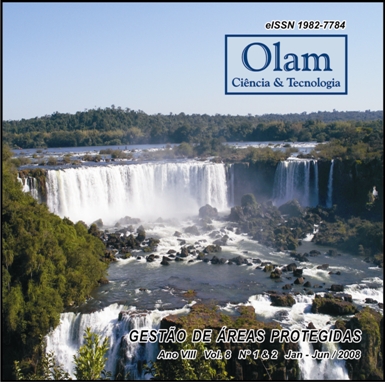A DIALÉTICA DA CONSTRUÇÃO DESTRUTIVA NA CONSAGRAÇÃO DO PATRIMÔNIO MUNDIAL
Palavras-chave:
Patrimônio Mundial. Cidade Histórica. Indústria Cultural. Turismo. Dialética da Construção Destrutiva. Gestão Participava.Resumo
Este artigo tem por principal objetivo discutir o que denominamos a “dialética da construção destrutiva” que envolve as cidades históricas consagradas como Patrimônio Mundial ou Patrimônio Cultural da Humanidade, no Brasil. Esta dialética se dá no próprio percurso de consagração do Patrimônio Cultural da Humanidade, quando temos, por um lado, a UNESCO, através da Convenção do Patrimônio Mundial, do Comitê do Patrimônio Mundial e da Lista do Patrimônio Mundial, como um organismo internacional de proteção que luta pela preservação inconteste dos bens culturais e naturais do mundo, e por outro lado, em contraposição, a tendência contemporânea de mercantilização, banalização e destruição dos espaços da história, da memória, da cultura, da natureza e da vida, ou seja, são dois processos que se estabelecem, dialeticamente, no percurso de consagração do patrimônio cultural da humanidade. Nossa crítica se deve ao caráter meramente estético e classista da apropriação dos bens culturais via turismo implantado, descompromissadamente, em algumas cidades históricas vivas brasileiras; na fetichização e cenarização progressiva evidenciadas nos espaços do patrimônio. A cidade histórica, ao ser tomada pela “indústria cultural” por via do turismo, é destituída de sua particularidade no fortalecimento do sentimento de pertencimento ao lugar e na edificação da cidadania. Ante ao frenesi pela Lista do Patrimônio Mundial, urge a implementação da gestão participativa dos bens culturais da humanidade. Palavras-chave: Patrimônio Mundial. Cidade Histórica. Indústria Cultural. Turismo. Dialética da Construção Destrutiva. Gestão Participativa. Abstract This article has as its main objective to discuss that which is called “the dialectics of the destructive construction”, that involves cities consecrated as world heritage or as Humanity’s cultural heritage, in Brazil. These dialectics occur in the process of consecration of the Humanity’s Cultural Heritage itself, as we have, on one hand, the UNESCO, through the World Heritage Convention, the World Heritage Committee and the World Heritage Index, as and international organ of protection that fights for the undisputed preservation of world-wide cultural and natural assets, and on the other hand, the contemporary tendency of mercantilizing, banalizing and destroying historical, memorial, cultural and natural spaces, ergo, two processes that establish themselves, dialectally, in the course of consecration of humanity’s cultural heritage. Our critic is owed to the merely esthetical and classist character of appropriation of the cultural assets, through the uncommitted tourism implemented in several living brazilian historical cities; in the progressive fetishism and scenarism displayed on the heritage’s space. The historical city, by being overtaken by the “cultural industry” through tourism, is depleted of it’s particularity in the strengthening of the feeling of belonging to a place and in the edification of citizenship. Before the frénésie by the World Heritage Index, rises the need of implementing a participative management of humanity’s cultural assets. Keywords: World Heritage. Historical City. Cultural Industry. Tourism. Destructive Construction Dialectics. Participative Management. OLAM - Ciência & Tecnologia, Rio Claro, SP, Brasil – eISSN: 1982-7784 está licenciada sob Licença Creative Commons. Rio Claro / SP, Brasil Ano VIII Vol. 8 No.1, Janeiro - Junho / 2008 – RESUMOSDownloads
Publicado
2008-08-17
Edição
Seção
ARTIGOS

